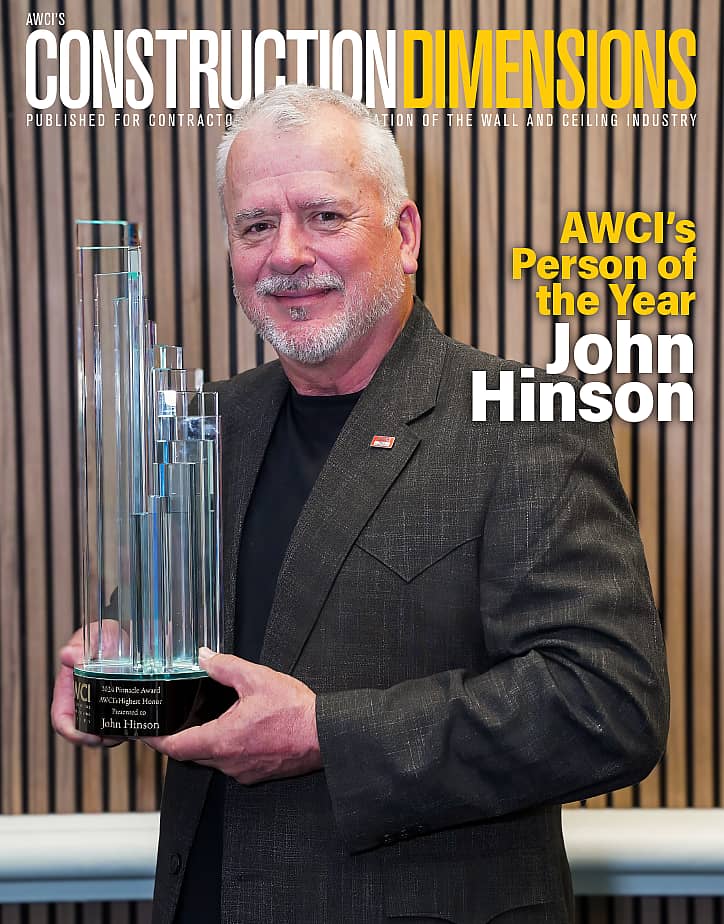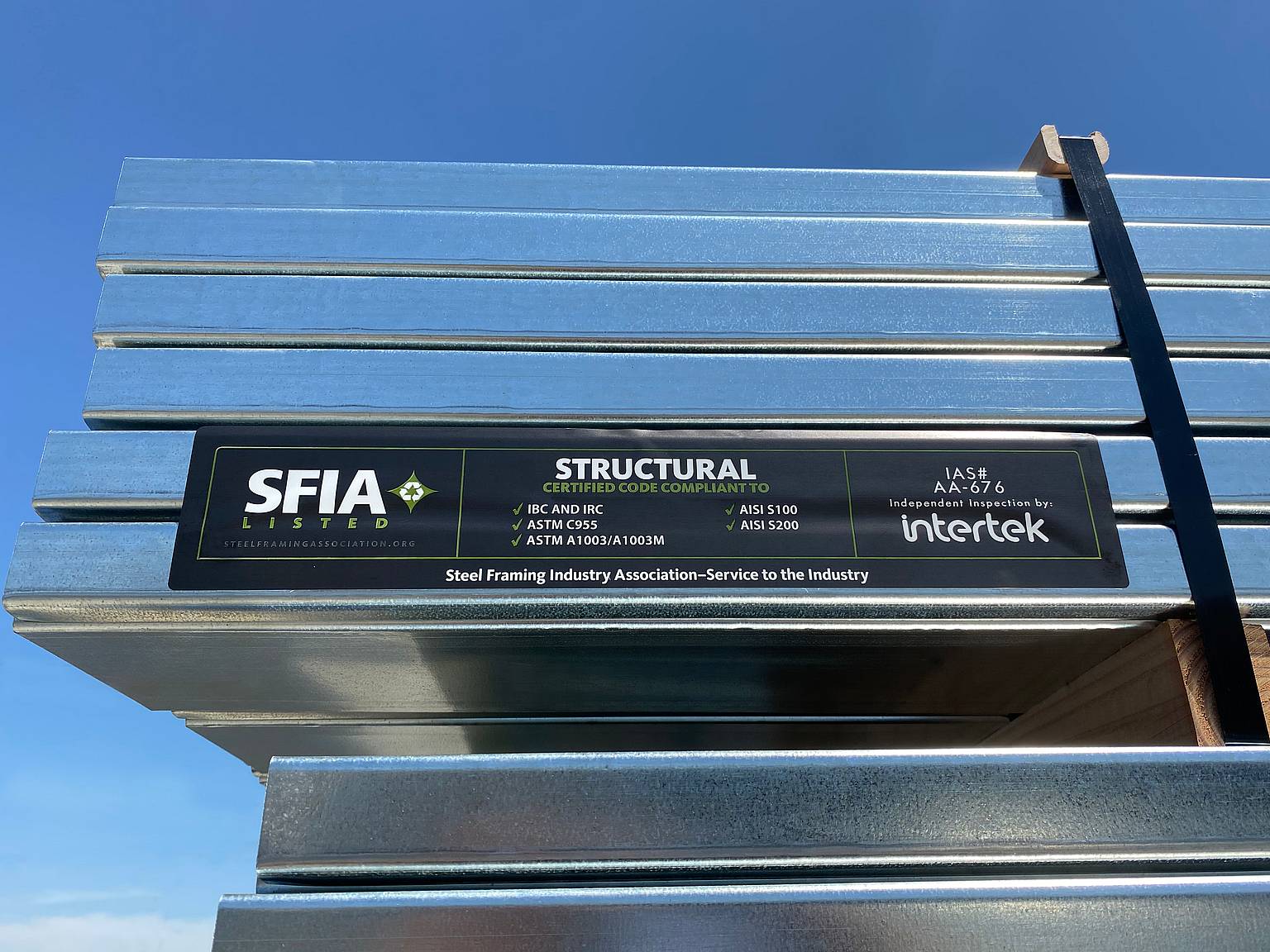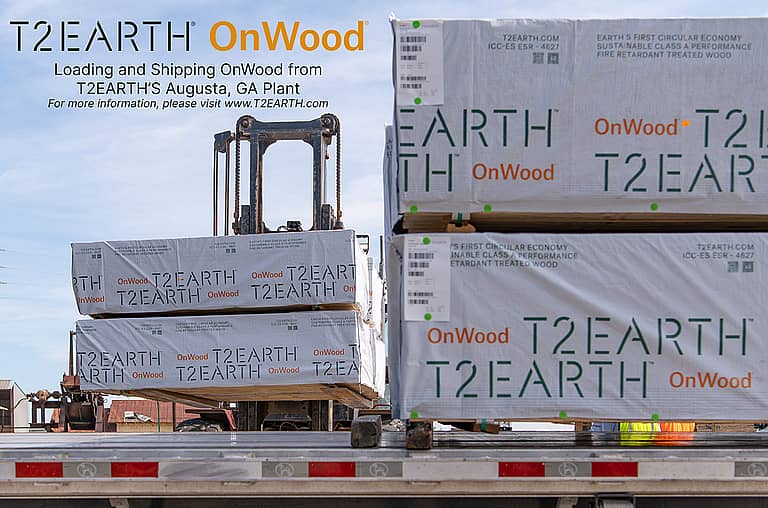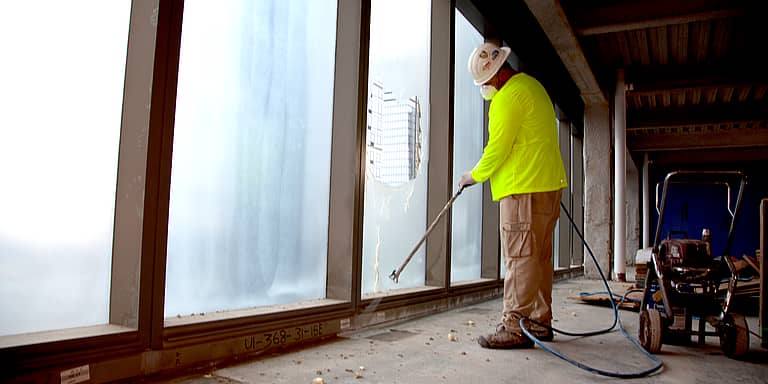Before the Steel Framing Industry Association (SFIA) was formed in 2011, manufacturers of cold-formed steel (CFS) studs and track lacked an industry-wide quality assurance program to give framing contractors confidence about the metal studs they used.
Back then, pressure on builders to limit construction risks had been increasing, and this made it difficult for metal studs to compete with other framing material types that had grading and certification programs in place.
SFIA was formed, in part, to put a QA program in place for steel framing.
“SFIA set the rules of engagement for the industry,” says Travis Vap of South Valley Drywall and AWCI president, 2022-2023. “Ultimately, the SFIA QA/QC program gives the marketplace a level of certainty and consistency for steel framing product. We have developed synergies so that the market can depend upon us.”
Quality Assurance Arrives
In October 2010, the Executive Committee of the Association of Wall and Ceiling Industry agreed to start a new association of steel mills, steel stud manufacturers, building materials suppliers and wall and ceiling contractors.
Right away, Greg Ralph of ClarkDietrich Building Systems (then with Dietrich Metal Framing), Randy Daudet of Simpson Strong-Tie and others were tasked to develop guidelines and provisions for industry-wide CFS certification.
“With strong support from AWCI as the contractor constituent, SFIA created a system of bylaws that mandates that manufacturers must be in the compliance program to be a member,” Ralph says. “And changing the compliance program requires a supermajority of the members. That protects the integrity of the program.”
SFIA launched the Code Compliance Certification Program in April 2011. The AWCI board of directors endorsed it in May 2011, giving contractors the assurance that SFIA labeled steel meets all relevant codes and standards. You can learn about SFIA steel framing certification here: https://sfia.memberclicks.net/stud-code-compliance-certification-program.
“The SFIA compliance program has been incredibly valuable for our industry,” says Eric Griswold of State Building Products and SFIA president, 2015-2018. “I believe it’s the longest running program of its kind in the history of steel framing, and it has proven to be successful for our manufacturing members and end-users, the contractors.”
Protection from Liability
If you haven’t yet seen QA/QC requirements in project specifications, you likely will soon. The SFIA certification program for metal stud manufacturers, for example, fulfills the requirements found in the American Iron and Steel Institute’s S240 North American Standard for Cold-Formed Steel Structural Framing, the definitive standard for building walls correctly. For example:
Quality Assurance. SFIA’s QA programs are achieved through physical testing. Participating producers are subject to unannounced inspections of their facilities and of product coming off their lines.
Quality Control. SFIA’s QC programs are process/document based. Providers must document all manufacturing, training, sales, raw materials ordering, fabrication and packaging processes.
SFIA has two product certification programs for producers:
1. The SFIA Code Compliance Certification Program for Cold-Formed Steel Stud and Track requires the stud manufacturer to document the controls and procedures used during manufacturing to ensure the correct steel is ordered. Manufacturing crews must also monitor tolerances and stud shapes as the framing material comes off the line. Certification requires strict record-keeping, including the ability to identify breakdowns in processes that may have resulted in product failures. The program is administered by Intertek Group, PLC, an independent third-party verifier.
2. The SFIA Connector Manufacturing Compliance Certification Program covers steel connectors. It requires a QA program to be in place and certifies that the coating weights and mechanical property requirements of manufactured connectors match all designs and part drawings. This program is also administered by Intertek.
All SFIA code compliance programs provide additional protection from liability for AWCI member contractors and carry the mark of quality recognized in the marketplace.
“Today, 84% of steel framing manufactured in the U.S. is certified by SFIA,” says Larry Williams, SFIA executive director.
Contractor Certification
SFIA also oversees a QA/QC program for framing contractors. The program provides a path for a contractor to become an SFIA Certified Professional Contractor.
“Our goal is a program that architects will write into their specifications, saying ‘a successful bidder will be a member of the SFIA Certified Professional Contractor program,’” says Richard Mountcastle of Precision Walls and SFIA Compliance Committee member. “We assure the architect that the materials being installed will be applied correctly.”
The SFIA Certified Professional Contractor program has developed some significant brand awareness among architects and specification writers.
“I did an informal survey of specs that we have reviewed as part of the SFIA Specifications Review Service,” says Robert Grupe, SFIA general manager, architectural services. “About 35 percent of the specs I have seen contain language relating to the qualifications of the installer.”
How can a contractor get certified? The program requires a contractor to:
1. Submit a code of ethics affidavit,
2. Affirm that they follow a quality management system,
3. Have a safety program in place,
4. Prove their CFS knowledge by taking an online examination,
5. Prove their installation expertise by submitting an observation report of a current project stamped by a licensed professional.
A similar program enables a metal truss provider to become an SFIA Certified Professional Truss Fabricator.
Get Free Project Assistance
Does your firm need support for a new or existing steel framing project in the U.S. and Canada? SFIA makes it easy to receive free assistance with online form available at buildsteel.org/project-assistance. Here are the benefits:
- Convert from wood framing, masonry or concrete to steel
- Access a national network of contractors, suppliers and manufacturers
- Work with industry experts who have decades of knowledge
- Consult with a central source on code-compliant design
Giving Contractors a Voice
In a relatively short period of time, SFIA has developed a credible certification program with distinctive labeling for structural studs, non-structural studs and connectors, launched contractor and truss fabricator QA/QC programs and cleared up confusion in the marketplace.
“This trade association is for the betterment of the whole,” says Megan Washnieski of South Valley Prefab and member of the SFIA board of directors. “We did it by changing gears—SFIA invited contractors to the table.”
“By giving contractors a voice,” Washnieski says, “manufacturers had an avenue to reach end users, and this created a value for the betterment of the industry. SFIA is not a regulatory agency. We’re a voice for unification.”
And, SFIA has become even stronger. In January 2023, the Cold-Formed Steel Engineers Institute (CFSEI) joined the SFIA family. The combined 2,300 CFSEI and SFIA members enjoy amazing opportunities for business and professional development.
Why not join SFIA today?
Larry Williams is executive director of the Steel Framing Industry Association. He can be reached at lwilliams@steelframing.org.





